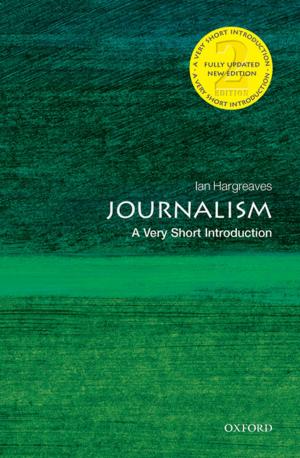Institutions For Future Generations
Nonfiction, Science & Nature, Nature, Religion & Spirituality, Philosophy, Social & Cultural Studies, Political Science| Author: | ISBN: | 9780192513908 | |
| Publisher: | OUP Oxford | Publication: | December 15, 2016 |
| Imprint: | OUP Oxford | Language: | English |
| Author: | |
| ISBN: | 9780192513908 |
| Publisher: | OUP Oxford |
| Publication: | December 15, 2016 |
| Imprint: | OUP Oxford |
| Language: | English |
In times of climate change and public debt, a concern for intergenerational justice should lead us to have a closer look at theories of intergenerational justice. It should also press us to provide institutional design proposals to change the decision-making world that surrounds us. This book provides an exhaustive overview of the most important institutional proposals as well as a systematic and theoretical discussion of their respective features and advantages. It focuses on institutional proposals aimed at taking the interests of future generations more seriously, and does so from the perspective of applied political philosophy, being explicit about the underlying normative choices and the latest developments in the social sciences. It provides citizens, activists, firms, charities, public authorities, policy-analysts, students, and academics with the body of knowledge necessary to understand what our institutional options are and what they entail if we are concerned about today's excessive short-termism.
In times of climate change and public debt, a concern for intergenerational justice should lead us to have a closer look at theories of intergenerational justice. It should also press us to provide institutional design proposals to change the decision-making world that surrounds us. This book provides an exhaustive overview of the most important institutional proposals as well as a systematic and theoretical discussion of their respective features and advantages. It focuses on institutional proposals aimed at taking the interests of future generations more seriously, and does so from the perspective of applied political philosophy, being explicit about the underlying normative choices and the latest developments in the social sciences. It provides citizens, activists, firms, charities, public authorities, policy-analysts, students, and academics with the body of knowledge necessary to understand what our institutional options are and what they entail if we are concerned about today's excessive short-termism.















